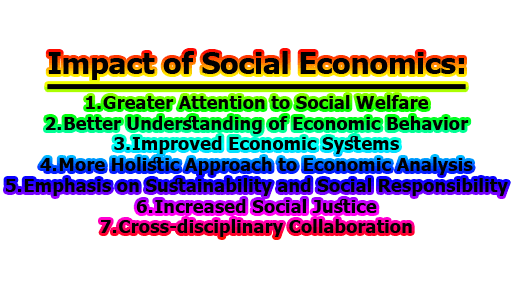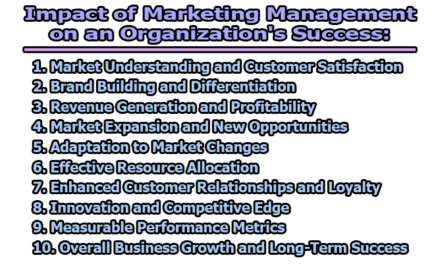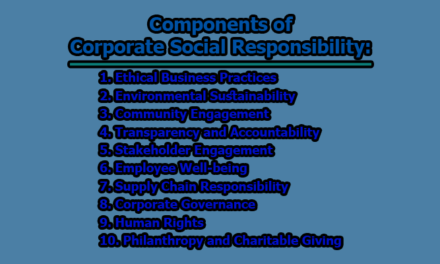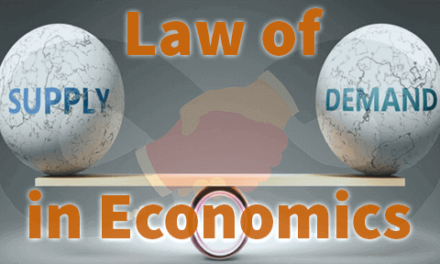Social economics is concerned with how economic systems can be designed and managed to promote the well-being of individuals and society as a whole, rather than solely maximizing profits or economic growth. In the rest of this article, we are going to know about the Impact of Social Economics.
Definitions of Social Economics:
Social economics can be defined in different ways, depending on the context and perspective. Here are some possible definitions:
“Social economics is the study of the relationship between economic activity and social life, including the ways in which economic processes affect social outcomes and how social structures influence economic behavior.” (John E. Roemer)
“Social economics examines the social and economic factors that influence human behavior and the relationship between economic activity and social welfare.” (The American Economist)
“Social economics is the application of the principles of economics to the study of society, including the allocation of resources, the distribution of income, and the role of government in managing economic systems.” (Investopedia)
“Social economics is an interdisciplinary field that explores the intersection of economic theory and social behavior. It examines the ways in which economic systems shape and are shaped by social norms, institutions, and culture.” (Oxford Bibliographies)
From the above definitions, we can say that social economics is a broad and interdisciplinary field that seeks to understand the complex relationships between economic systems, social structures, and human behavior.
Impact of Social Economics:
Social economics has the potential to have a significant impact on our understanding of economic systems and their relationship with society. Here are some potential ways in which social economics can have an impact:
1. Greater Attention to Social Welfare: Social economics places a greater emphasis on the social impacts of economic policies and practices, which can lead to greater attention being paid to issues such as poverty, inequality, and social mobility. This can lead to the development of policies that are more focused on improving social welfare and reducing social harm.
2. Better Understanding of Economic Behavior: By examining the social and cultural factors that shape economic behavior, social economics can help us to better understand why people make the economic choices they do. This can inform the development of policies and practices that are more effective at achieving desired economic outcomes.
3. Improved Economic Systems: Social economics can inform the design of economic systems that are more responsive to social needs and values. By taking into account the social context in which economic systems operate, we can create systems that are better able to address social problems and promote social welfare.
4. More Holistic Approach to Economic Analysis: Social economics draws on insights from multiple social sciences, including sociology, psychology, and anthropology, to develop a more comprehensive and interdisciplinary understanding of economic systems. This can help to overcome the limitations of narrow, one-dimensional economic models that may not fully capture the complexity of economic behavior and outcomes.
5. Emphasis on Sustainability and Social Responsibility: Social economics places a strong emphasis on sustainability and social responsibility in economic decision-making. This can lead to greater consideration of the long-term impact of economic activities on society and the environment, as well as the ethical and social implications of economic policies and practices.
6. Increased Social Justice: Social economics is concerned with promoting greater social justice and reducing inequality. By highlighting the ways in which economic systems can exacerbate or alleviate social inequality, social economics can inform the development of policies and practices that promote greater social justice and equality.
7. Cross-disciplinary Collaboration: Social economics draws on insights from a range of social sciences, including sociology, psychology, and political science. This can lead to greater cross-disciplinary collaboration and a more integrated understanding of the complex relationships between economic and social systems.
Overall, the impact of social economics is likely to be wide-ranging and far-reaching, as it has the potential to inform economic policy and practice in ways that are more responsive to social needs and values.

Library Lecturer at Nurul Amin Degree College










